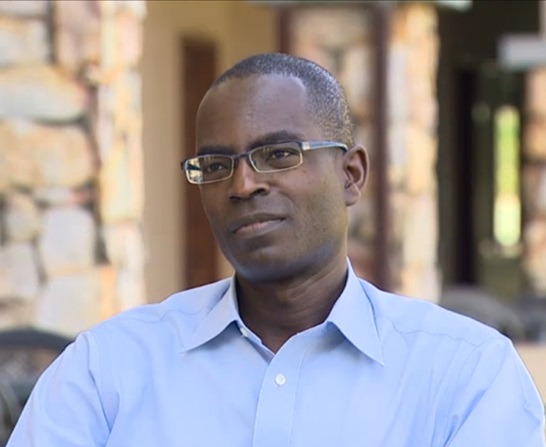
In 2001, after living in America for almost two decades, Patrick Awuah returned to Ghana, leaving his job at Microsoft, where he earned millions as program manager to set up Ashesi University in Accra, to educate young Africans. “If the current leadership core was educated a certain way, if they were problem solvers, if they had deep compassion for society, we would be in a different place,” he thought. Hence, Ashesi University is known for its innovative curriculum, high tech facilities, and strong emphasis on leadership. The University stirs a new path in African education.
In his TED Global talk in 2007, Patrick Awuah explains his call to educate Africa’s future leaders, and why he believes this is very important.
At the age of 16 in Ghana, Patrick Awuah had his first memorable experience of leadership. At the airport to meet his father, he is stopped by two soldiers wielding AK-47 assault weapons. “They asked me to join a crowd of people that were running up and down this embankment. Why? Because the path I had taken was considered out of bounds. No sign to this effect,” he noted.
Typical of teenagers, Patrick was quite concerned of what his peers, especially girls, would think if they saw him running up and down the hill. So he argued with soldiers. Luckily for him, a pilot falls into the same predicament. The soldiers addressed him differently because he wore a uniform; they explained that they were only following orders. The pilot takes their radio, talks to their boss, and gets everyone released. Patrick learnt several things from that experience. “Leadership matters – those men are following the orders of a superior officer. I learned something about courage – it was important not to look at those guns.”
A few years after that event, Patrick left Ghana to attend Swarthmore College in the United States. “The faculty there didn’t want us to memorise information and repeat back to them as I was used to back in Ghana. They wanted us to think critically. They wanted us to be analytical. They wanted us to be concerned about social issues.” At Swarthmore, Patrick got high marks for his understanding of basic economics in his economic classes, but the deeper lesson was that, the leaders, the managers of Ghana’s economy were making really bad decisions, some of which had fuelled the near-collapse of the country’s economy. “And so here was this lesson again – leadership matters. It matters a great deal,” he explained.
In spite of Patrick’s Epiphany at Swarthmore, it wasn’t until he started working at Microsoft Corporation that he realised it. “I was part of this team, this thinking, learning team whose job it was to design and implement new software that created value in the world…. And I realised just what had happened to me at Swarthmore … The ability to confront problem, complex problems, and to design solutions to those problems. The ability to create is the most empowering thing that can happen to an individual.”
At Microsoft, Patrick became a parent. The thought of his children’s perception of Africa in comparison to the rest of the world instigated a desire to return home and change the overwhelming narrative that portrayed the dark continent. He was determined to contribute his quota towards the continents development.
On his return 14 years ago, he found out that for every problem three things kept coming up; corruption, weak institutions, and the people who run them – the leaders. Patrick asked two very important questions: where are these leaders coming from? What is it about Ghana that produces leaders that are unethical or unable to solve problems?
In search of answers, he scanned the country’s educational system and realised that nothing had changed during his time away. “It was the same learning by rote, from primary school through graduate school. Very little emphasis on ethics … and the typical graduate from a university in Ghana has a stronger sense of entitlement than a sense of responsibility. This is wrong.” Patrick’s resolve to address this problem resulted in the conception and birth of Ashesi University, an institution launched to develop young African leaders. “Every society must be very intentional about educating its leaders … so this is what I’m doing now. I’m trying to bring the experience I had at Swarthmore to Africa. What Ashesi University is trying to do, is to train a new generation of ethical, entrepreneurial leaders. We’re trying to train leaders of exceptional integrity, who have the ability to confront the complex problems, ask the right questions, and come up with workable solutions.”
Ashesi started with 30 students in 2002 in a rented building. Today the university campus is set on a 100 acre land near Aburi, an hour’s drive from Ghana’s capital, Accra, with over 500 students. The academic curriculum is a blend of Liberal arts and Sciences. “we’re going to educate computer science students who’ve also done philosophy, and leadership, and ethics … we’re going to educate business majors who’ve studied literature and have also done computer programming because we think that broad perspectives are important,” a bullish Patrick told the audience at the TEDEx talk.
The university has an Honour Code, where the students pledge to be honest and to hold each other accountable. The students of Ashesi University take ownership of their ethical posture on campus. “This is a huge break from the norm in most African universities, where corrupt practices run free,”Patrick says. “While the Honour Code may constitute a reach for a perfect society, which is unachievable, we cannot achieve perfection, but if we reach for it, we can achieve excellence.”
If more exceptionally minded and critical thinking individuals like Patrick Awuah would rise to the occasion of transforming Africa, the continent will make great strides in ridding itself off corruption, weak institutions, and most importantly unethical and inefficient leaders.
Credit – www.ventures-africa.com
